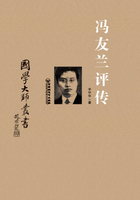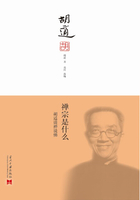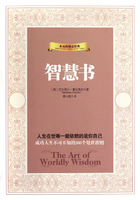"No, thanks, dear Alessandro, I would rather walk," she replied; and Alessandro slipping the bridles of the two horses over his left arm, they walked on. Father Gaspara heard the question and answer, and was still more puzzled.
"He speaks as a gentleman speaks to a lady," he mused. "What does it mean? Who are they?"
Father Gaspara was a well-born man, and in his home in Spain had been used to associations far superior to any which he had known in his Californian life, A gentle courtesy of tone and speech, such as that with which Alessandro had addressed Ramona, was not often heard in his parish. When they entered his house, he again regarded them both attentively. Ramona wore on her head the usual black shawl of the Mexican women. There was nothing distinctive, to the Father's eye, in her figure or face. In the dim light of the one candle,-- Father Gaspara allowed himself no luxuries,-- the exquisite coloring of her skin and the deep blue of her eyes were not to be seen. Alessandro's tall figure and dignified bearing were not uncommon. The Father had seen many as fine-looking Indian men. But his voice was remarkable, and he spoke better Spanish than was wont to be heard from Indians.
"Where are you from?" said the Father, as he held his pen poised in hand, ready to write their names in the old raw-hide-bound book.
"Temecula, Father," replied Alessandro.
Father Gaspara dropped his pen. "The village the Americans drove out the other day?" he cried.
"Yes, Father."
Father Gaspara sprang from his chair, took refuge from his excitement, as usual, in pacing the floor. "Go! go! I'm done with you! It's all over," he said fiercely to the Irish bride and groom, who had given him their names and their fee, but were still hanging about irresolute, not knowing if all were ended or not. "A burning shame! The most dastardly thing I have seen yet in this land forsaken of God!" cried the Father. "I saw the particulars of it in the San Diego paper yesterday." Then, coming to a halt in front of Alessandro, he exclaimed: "The paper said that the Indians were compelled to pay all the costs of the suit; that the sheriff took their cattle to do it. Was that true?"
"Yes, Father," replied Alessandro.
The Father strode up and down again, plucking at his beard. "What are you going to do?" he said. "Where have you all gone? There were two hundred in your village the last time I was there."
"Some have gone over into Pachanga," replied Alessandro, "some to San Pasquale, and the rest to San Bernardino."
"Body of Jesus! man! But you take it with philosophy!" stormed Father Gaspara.
Alessandro did not understand the word "philosophy," but he knew what the Father meant. "Yes, Father," he said doggedly. "It is now twenty-one days ago. I was not so at first. There is nothing to be done."
Ramona held tight to Alessandro's hand. She was afraid of this fierce, black-bearded priest, who dashed back and forth, pouring out angry invectives.
"The United States Government will suffer for it!" he continued.
"It is a Government of thieves and robbers! God will punish them.
You will see; they will be visited with a curse,-- a curse in their borders; their sons and their daughters shall be desolate! But why do I prate in these vain words? My son, tell me your names again;" and he seated himself once more at the table where the ancient marriage-record lay open.
After writing Alessandro's name, he turned to Ramona. "And the woman's?" he said.
Alessandro looked at Ramona. In the chapel he had said simply, "Majella." What name should he give more?
Without a second's hesitation, Ramona answered, "Majella.
Majella Phail is my name."
She pronounced the word "Phail," slowly. It was new to her. She had never seen it written; as it lingered on her lips, the Father, to whom also it was a new word, misunderstood it, took it to be in two syllables, and so wrote it.
The last step was taken in the disappearance of Ramona. How should any one, searching in after years, find any trace of Ramona Ortegna, in the woman married under the name of "Majella Fayeel"?
"No, no! Put up your money, son," said Father Gaspara, as Alessandro began to undo the knots of the handkerchief in which his gold was tied. "Put up your money. I'll take no money from a Temecula Indian. I would the Church had money to give you.
Where are you going now?"
"To San Pasquale, Father."
"Ah! San Pasquale! The head man there has the old pueblo paper," said Father Gaspara. "He was showing it to me the other day. That will, it may be, save you there. But do not trust to it, son. Buy yourself a piece of land as the white man buys his. Trust to nothing."
Alessandro looked anxiously in the Father's face. "How is that, Father?" he said. "I do not know."
"Well, their rules be thick as the crabs here on the beach," replied Father Gaspara; "and, faith, they appear to me to be backwards of motion also, like the crabs: but the lawyers understand. When you have picked out your land, and have the money, come to me, and I will go with you and see that you are not cheated in the buying, so far as I can tell; but I myself am at my wit's ends with their devices. Farewell, son! Farewell, daughter!" he said, rising from his chair. Hunger was again getting the better of sympathy in Father Gaspara, and as he sat down to his long-deferred supper, the Indian couple faded from his mind; but after supper was over, as he sat smoking his pipe on the veranda, they returned again, and lingered in his thoughts,-- lingered strangely, it seemed to him; he could not shake off the impression that there was something unusual about the woman. "I shall hear of them again, some day," he thought. And he thought rightly.















